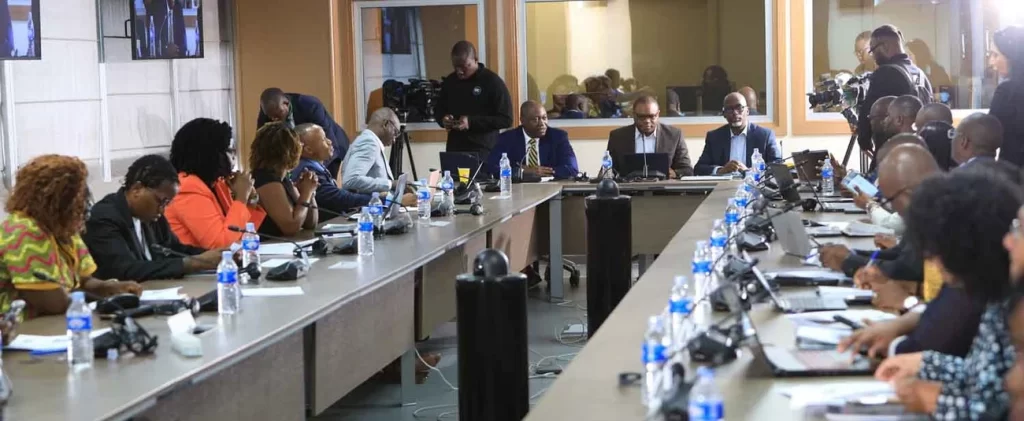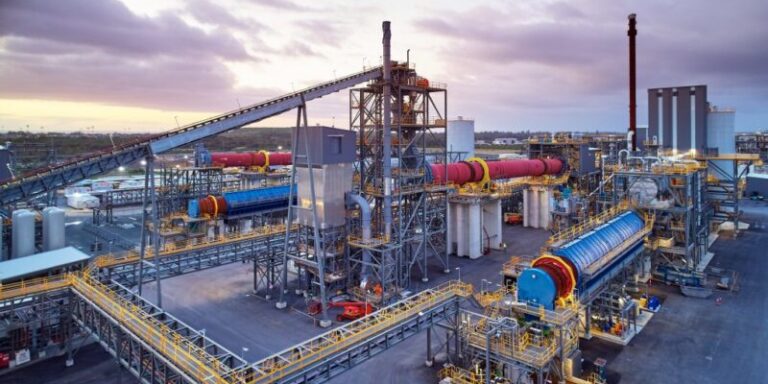
Africa must invest more in the development of renewable energies, with the support of the private sector and international financial institutions, due to the opportunities offered for achieving Sustainable Development Goals, experts emphasized on Wednesday last week in Abidjan.
The continent should also control, exploit, and process its vast mineral resources locally to generate the financial resources necessary for its development, supported by experts from around ten African countries.
They gathered on August 23rd and 24th, 2023 for a workshop organized by the African Development Bank, under the theme “Financial Modeling for the Extractive Sector (FIMES).”
“Renewable energies provide us with opportunities to achieve Sustainable Development Goals. We also need to be major players in the energy sector,” stated Jean-David Cooper, Director of Policies and Research at the Ministry of Mines and Mineral Resources of Sierra Leone.
Mr. Cooper spoke during the panel on “financial modeling for a just energy transition for certain critical minerals in transitioning countries.”
Participants noted that Africa has made significant progress in energy transition despite challenges. Silas Olang, Energy Transition Advisor for Africa at the Natural Resource Governance Institute in Accra, Ghana, pointed out the scale of the goals that still need to be achieved.
He lamented that no African country ranks among the top 30 in the world for energy transition. However, countries like Nigeria, Ghana, Ethiopia, Kenya, and South Africa are implementing bold renewable development policies.
Renewable energies can provide electricity to the 600 million Africans currently without access, create jobs, and stimulate industrialization. “Every dollar invested in renewable energies will yield an additional $0.93,” and the deployment of renewable energies will gradually lead to lower costs compared to fossil fuels, Mr. Cooper affirmed.
Among the assets that Africa possesses in this regard are solar, wind, biomass, hydroelectricity, and minerals like lithium, graphite, or cobalt, which can be used in renewable energy technologies such as solar panel production and electric vehicle batteries.
The need for the continent to better leverage its vast mineral resources for sustainable development was a recurring topic in the discussions.
Uranium from Niger is exploited by France, and its oil is extracted by China, highlighted Dogari Bassirou, Director General of the Economy at the Ministry of Economy and Finance of Niger.
This results in enormous financial losses for African governments, which often have to rely on foreign mining companies’ declarations about the mineral content.
“Minerals are not processed in Africa but in European countries and China. 80% of African cobalt is refined in China.
If we could refine minerals in Africa, we could sell them at a higher rate because raw exports limit our financial gains. We are losing a lot in the current system,” stated Mr. Cooper.
“For example, it is said that the content is 45%. How can we verify and determine that? We need to help countries better understand the cost-setting processes and impurity determination in minerals,” argued Boubacar Lounceny Camara, representing Guinea, before adding, “The price of raw gold is determined based on refined gold.
However, it’s the companies that provide us with the quantity of refined gold. This results in enormous losses.
The metals extracted from our countries contain other mineral resources,” lamented Mr. Camara, calling on the African Development Bank to help African countries establish mineral processing plants before exporting.
However, Mr. Camara emphasized that Guinea has managed to define a reference price for bauxite with the support of its international partners and is ready to share its experience with other African countries.
To boost the development of renewable energies, each African country must have a clear vision and develop separate laws from those applied to fossil fuels.
As for sector financing, governments need to create a stable political environment, adopt attractive laws for the private sector, establish a transparent budget system, and combat corruption.
The private sector, with its financial power and expertise, can play a crucial role, as can international financial institutions.
These institutions must assist countries in implementing regional projects and serve as catalysts in mobilizing additional investments.
Yannick Bouterige, Research Assistant at the Foundation for Studies and Research on Development (FERDI), explained how the African Development Bank, through its Extractive Sector Financial Modeling Project, helps African countries generate more tax revenues, strengthen their institutional capacities, and enhance resilience.
Guinea, Mali, Liberia, Madagascar, Niger, Sierra Leone, South Sudan, and Zimbabwe are beneficiaries of this two-year program launched in 2020.
In terms of renewable energy financing, the Bank also has several financing instruments, investment projects, and departments dedicated to the sector that benefit all African countries.
“The Bank’s new Climate Action Window, endowed with approximately $429 million, could offer an excellent opportunity to finance low-carbon projects from renewable natural resources in Africa,” stated Innocent Onah, Chief Natural Resource Officer at the African Natural Resource and Investment Center (ECNR) of the African Development Bank. Distributed by APO Group for the African Development Bank Group (AfDB).





